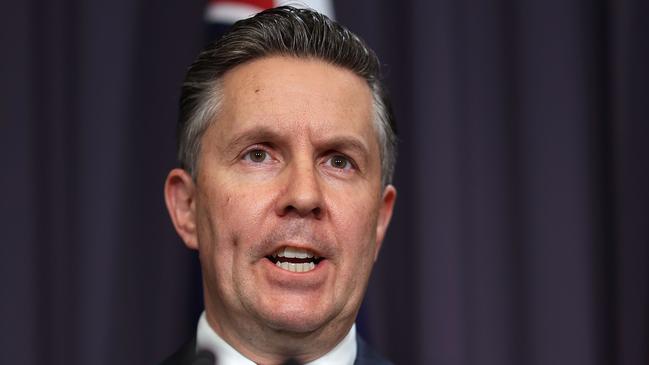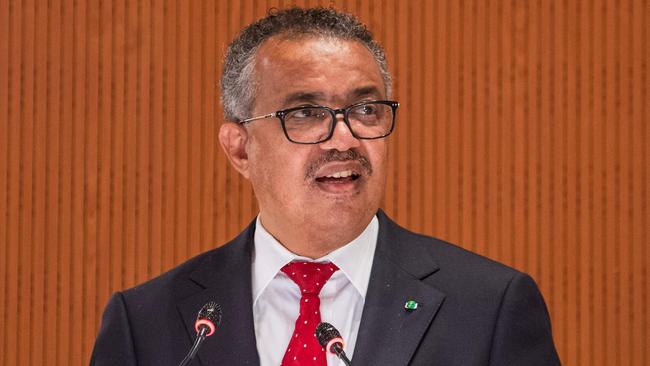Monkeypox a “global health emergency”
State and federal governments are moving to secure new vaccines and treatments to halt the spread of monkeypox in Australia after WHO declared it an international public health emergency.

Authorities in Australia are calling for calm after the World Health Organisation declared the growing global monkeypox outbreak a “public health emergency of international concern”, with federal and state governments moving to co-ordinate a national response.
WHO made the declaration at the weekend as worldwide cases reached 16,000 across 75 countries, including more than 4000 in the last week, saying the global risk was “moderate”, but “high” for the European region.
It is the strongest international call to action available to the organisation, one made only seven times previously, the last being Covid-19 in early 2020.
Monkeypox has reached Australia, with 44 cases reported to date. More than half (24) are in NSW, 16 in Victoria, two in the ACT and one each in Queensland and South Australia. Most were acquired overseas but a small number were acquired locally.
A painful but usually non-life-threatening virus that manifests with sores on the body, monkeypox has been around since the 1970s but has been largely confined to Africa. Just five people have died from the virus this year, all in Africa. Epidemiologists say it requires close contact to be spread, which to date has mainly been through men having sex with other men. Vaccines and antiviral treatments are available.
Health Minister Mark Butler acknowledged the uncertainty it was causing among at-risk groups.
“The Australian government recognises the concern that gay, bisexual and other men who have sex with men have about monkeypox and we are urgently working across governments to respond,” Mr Butler said.
“The commonwealth government is working to secure supply and the relevant approvals for new vaccines and treatments.
“(And we are) working closely with peak bodies and organisations to improve awareness and encourage people at risk and health professionals to be aware and alert to the symptoms.” Queensland’s acting chief health officer Peter Aitken said WHO’s international declaration should be seen as a precaution.
“It was a sensible and precautionary move to make sure the international community is aware, because it enhances the ability to provide surveillance so we can keep track of monkeypox,” Dr Aitken said.
“It’s not something to be concerned about within Queensland. There is only that one case in Queensland at the current stage, which has been acquired from overseas.”
WHO director-general Tedros Adhanom Ghebreyesus said his organisation had taken the step to declare monkeypox a global health emergency because of the uncertainty as to why it was spreading.

“We have an outbreak that has spread around the world rapidly through new modes of transmission about which we understand too little,” Dr Tedros said. The WHO monkeypox declaration comes after H1N1 swine flu in 2009, polio in 2014, ebola in 2014 and again in 2019, zika virus in 2016 and Covid in 2020.
It recommended countries with current monkeypox cases engage with and protect affected communities, intensify surveillance and public health measures and commit to more research into vaccines and other treatments.
Dr Tedros personally made the call to declare the virus a global health emergency despite only a minority of WHO’s emergency committee agreeing with him.
Those in favour noted a small numbers of cases had been detected in pregnant women and children, and said questions remained about modes of transmission and the effectiveness of vaccines.
But those against noted the health impact of the disease wasn’t severe and the cases weren’t increasing exponentially.
Australian National University infectious diseases expert Sanjaya Senanayake said Australian authorities could consider a targeted vaccine rollout for groups at risk of monkeypox, along with more education programs.
“It‘s important we try to understand more about the groups at risk of the virus and also new modes of transmission in order to educate and protect both these at-risk groups and the community,” Professor Senanayake said.







To join the conversation, please log in. Don't have an account? Register
Join the conversation, you are commenting as Logout